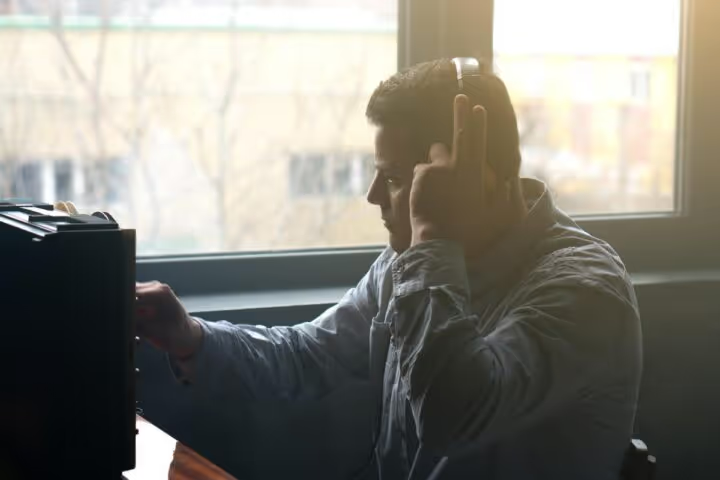Can the police track your phone?


Are you anxious you may be arrested on suspicion of a crime, or already have been? Are you concerned that the police may be tracking your phone? In this article, we’ll discuss whether the police can track your phone.
Can your phone be tracked by the police?
Yes, the police can remotely track your phone. They must seek a warrant to do so and usually only attempt this if you are suspected of committing a very serious crime, like terrorism.
They can track your phone in a few different ways, including telecom tower triangulation, GPS location tracking, obtaining your call data records, IMEI (international mobile equipment identity number), amongst many other methods.
They can also access the data on your phone by seizing your phone when they arrest you. They have resources to hack into your phone without your PIN or passcode.
Do I need to give the police my phone?
The police may request your phone in many situations and your right to refuse depends on the situation.
Routine stop and search
If you are the subject of a routine stop and search, you do not have to hand over your phone. The police may ask you, but if they attempt to access your phone during one of these searches, the evidence they find will not be admissible in a court of law. Always be aware of your rights.
Arrest
If you are arrested, the police may have the legal power to confiscate your phone depending on the situation. If they believe it could be used as evidence relating to the suspected offence, or if it’s relevant to preventing harm or the obstruction of an investigation, they can seize it. If not, they cannot take it. In this situation, you do not have to give the police your PIN/passcode, though they will likely be able to get into your phone regardless. They can keep your phone as long as the investigation is open.
Section 49 Notice
If you have been issued with a Section 49 notice (from the Regulation of Investigatory Powers Act, 2000), you legally have to give your phone and PIN/passcode to the investigators. If not, you face up to 2 years in prison for refusing. Section 49 notices are issued by higher power law enforcement such as the National Crime Agency, MI5, MI6, and HMRC, and are issued where very serious crimes are involved, like terrorism and sexual offences against children.
Can the police install spyware on my phone?
The police can obtain a legal warrant to install spyware on your phone – if they don’t have permission then they can’t use the evidence in court.
They only install spyware where very serious crimes are involved, like terrorism and other threats to national security. They can install this remotely or in-person if they seized your phone after an arrest.
They do not have a legal obligation to tell you that they installed the spyware.

What data can the police get from my phone?
The police have access to a wide array of information from your phone, regardless of whether they are tracking it remotely or forensically analysing it after seizing it.
They can look at data such as:
- Photographs/videos (including metadata outlining the location/time/date the image was taken)
- Downloaded files
- Contact details
- Email history
- Browsing history
- Banking information
- Messages (SMS and through third-party apps like WhatsApp)
- Social media activity
- Deleted files/messages/pictures/videos
Alone, or alongside witness testimony/video or photo evidence, the police can use this phone data to prove you are guilty of committing a crime, or at least strongly suggest that you did.
Can the police access your phone without you knowing?
Yes, you may be completely unaware that the police are accessing your phone. Modern digital tracking methods are very advanced, so the police leave little to no trace that they were tracking your phone and its data.
How do you know your phone is tapped by the police?
It is very difficult to tell if the police have tapped your phone. There are some subtle indicators you can look out for, such as:
- Your battery is draining quickly – the police may be remotely running processes in the background which are using up your battery faster.
- Strange noises during calls – you might hear odd clicking noises, static, or distant voices, but this is not as common as it used to be due to advancement with modern digital tapping.
- Your data usage has increased – the police could be remotely transmitting data from your phone, leading to higher data usage for you.
- Your phone is behaving oddly – if your phone is restarting or shutting down itself, your apps are opening and closing without your input, this could be a sign that the police are accessing your phone data.
- Your phone is taking longer to shut down – if your phone is taking more time to completely shut down, this might be because it is processing data transmissions you’re unaware of before it shuts down.
- You’ve found software or apps you don’t recognise – you may have malicious spyware installed on your phone which the police are using to access the data.
Worried the police may be tracking your phone?
If you think the police could be or may track your phone, it’s crucial to seek legal support as soon as possible. Here at Holborn Adams, our criminal defence solicitors specialise in pre-charge law, helping individuals suspected of crimes but who have not been formally charged yet.
If you have been arrested, we can help you initiate a process called pre-charge engagement (see the video below) where we’ll present a case to the investigators to demonstrate why you should be released with no charges.
Contact our expert pre-charge solicitors today.




